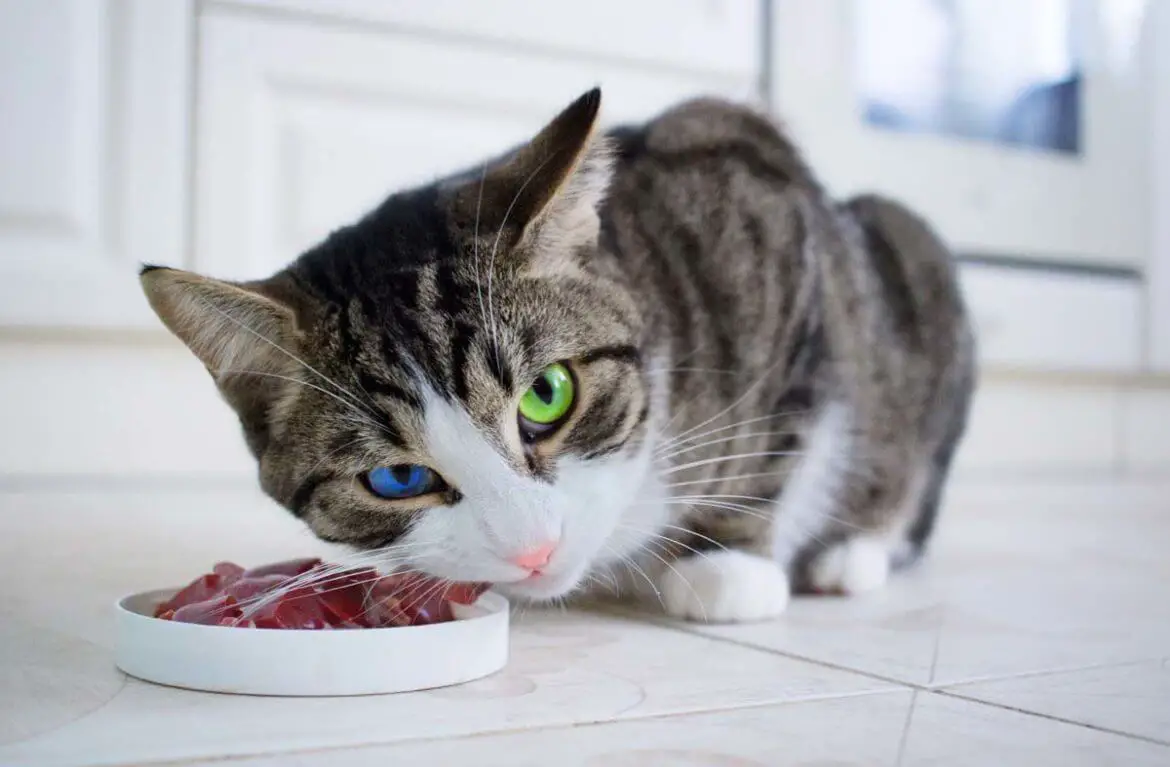It is common in many households to “make the cat happy” with leftover food. A bone from the Kottelet, the remains of the chicken, or a piece of butter from your finger – does that sound familiar? But there are some foods that are literally poison for the velvet paw. Does pork belong to it? This post clarifies whether cats are allowed to eat pork.
Can Cats Eat Pork Chops or Raw Pork?
- Raw pork can be dangerous.
- Well-cooked pork is less dangerous.
- If cats eat infected pork, they can die.
When Is It Safe to Eat Pork?

Cats can eat pork if it is well cooked and virus-free. “Virus-free” means that there is no herpes virus in the meat that could trigger what is known as Aujeszky’s disease (AK) or pseudo anger. This particular virus is also called the AK virus.
How Do You Know Raw Pork is Virus-Free?
In principle, you have no way of knowing whether pork is virus-free. The fact is that the AK is notifiable and the USA ensures that infected animals are euthanized immediately. The virus usually lodges in pigs. If farmers notice symptoms of the disease in their pigs, they must immediately notify the competent authority, which will see to it that the animals be killed as soon as possible.
In the USA, the virus is considered to be contained in domestic pigs, but it should not be forgotten that the veterinary office only takes random samples. The problem is that the disease does not break out immediately but often takes a few days for the symptoms to show up. Infected animals that have not shown any symptoms before the slaughter date are therefore put on the market. Compared to domestic pig meat, wild boar is much more dangerous for cats. Humans are immune to the virus.
Pork From Abroad is Not Safe for Cats
If you buy raw pork products whose producers are not based in the US, the risk increases that the house tiger will become infected while consuming the meat. The controls in other US member states and in other US countries are different. If you want to be on the safe side, opt for pork from animals that have been bred consistently in US farms and exclusively with US animals. By doing this, you will greatly minimize the risk of the virus being contained.
What If the Cat Ate Raw Pork with the AK Virus?
The pathogen acts on the cat’s nervous system and affects the brain. Once your cat has ingested the deadly virus, it will develop symptoms reminiscent of rabies. She salivates profusely, has difficulty breathing, and vomits. Typical neurological symptoms such as eye twitching, muscle twitching, aggressiveness, and pronounced fear reactions also show up in massive form. The symptom that is most noticeable is extreme itching. Sometimes this is so big that the animals injure themselves badly and sometimes bite the itchy area right down to the bone. If your velvet paw falls ill with the AK virus, it will not survive. The disease is always fatal. In principle, you only have the option of having your beloved pet euthanized quickly to save him the agony.
Can Cats Eat Fried Pork?
Since there is no 100 percent certainty that pork is free from the AK virus, you should not feed fried pork as a precaution. While it is true that the heat of frying attacks the virus and, in most cases, kills it, it is still possible that it will survive.
The same goes for cooked pork. As a matter of caution, you should therefore generally refrain from feeding your cat pork.
Can Cats Eat Ham?
Ham is made from pork and is also salted and seasoned. Although it cannot be assumed that the AK virus is in the ham if the product comes from US producers, the spices are not intended for a cat’s stomach. They can cause diarrhea and discomfort.
Avoid Feeding Pork in any Form
The best thing to do is to remove all foods that contain pork from the menu for their kitties. Then you are on the safe side and do not have to worry about your house tiger ingesting the deadly virus.

